
- Home
- Character
- Banana Fish (3)
- Batman (2)
- Character (4)
- Gentleman Ghost (2)
- Guts (2)
- Harry Potter (18)
- James Bond (19)
- Jujutsu Kaisen (2)
- Khaleesi (2)
- Mr Men (2)
- My Hero Academia (2)
- Non (48)
- Sailor Moon (2)
- See Title (2)
- Spawn (4)
- The Hebridean (2)
- Titans (2)
- Tokyo Revengers (2)
- Vagabond (2)
- Valentino (2)
- ... (3356)
- Franchise
- Attack On Titan (3)
- Azur Lane (2)
- Banana Fish (3)
- Berserk (4)
- Black Butler (2)
- Demon Slayer (2)
- Disney (9)
- Doctor Who (2)
- Dragon Ball (2)
- Dragonball Z (2)
- Evangelion (4)
- Harry Potter (15)
- Japan (4)
- Lord Of The Rings (3)
- My Hero Academia (2)
- Pokémon (3)
- Promare (2)
- Sailor Moon (8)
- Star Wars (4)
- Vagabond (2)
- ... (3402)
- Language
- Material
- Theme
- Tv Show
Art Photojournalism Culture Indie Photography Books Collection Set/job Lot
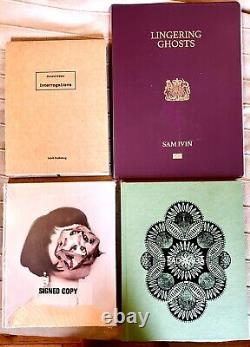

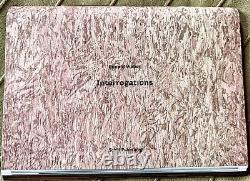
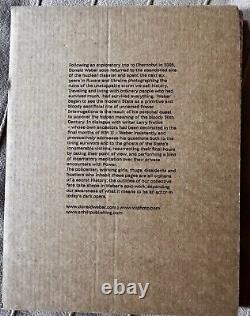
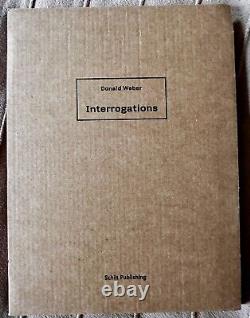
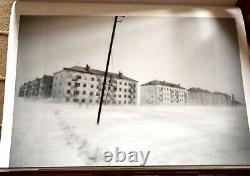
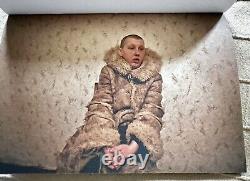
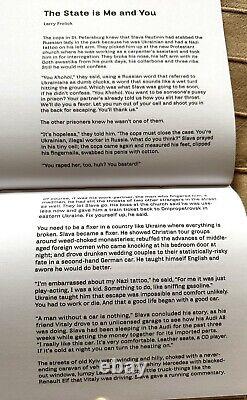
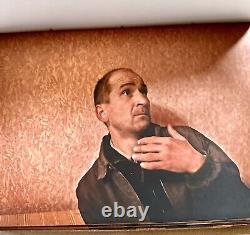

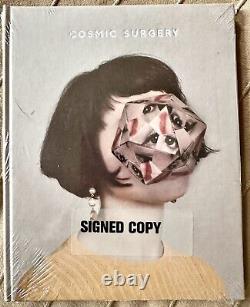


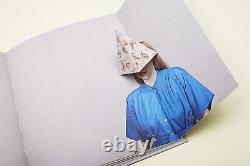
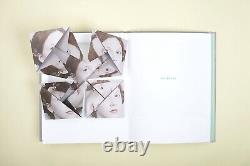
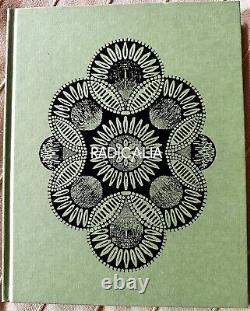
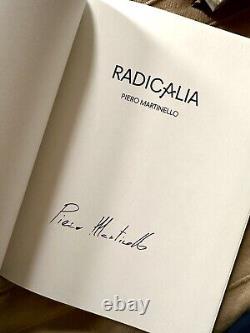
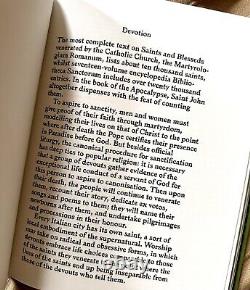
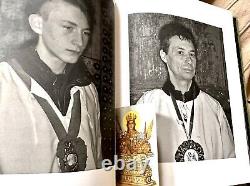
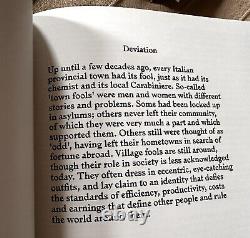
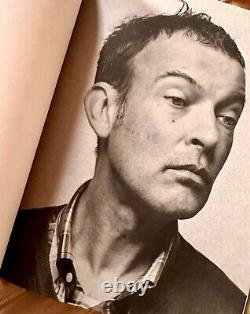
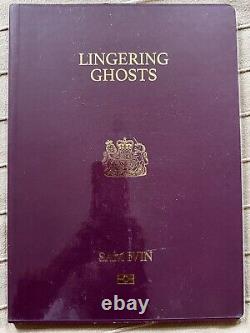
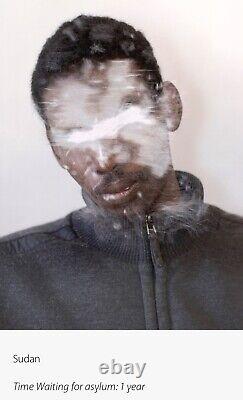
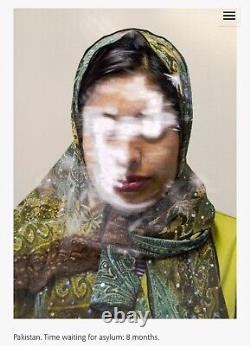


This is a unique art photography book collection. All books in excellent, unused condition. From a smoke/pet free home. Please take a close look at my photographs as they form part of the description.
Please take a look at my other collections for sale will offer discount for multi-buys. Free collection from NW London, NW6 (Zone 2 Travelcard). The 4 photobooks included in this set are from small/independent publishers and are rare and collectible.
COSMIC SURGERY BY ALMA HASER. Ltd Ed of 500 copies. Since leaving University in 2010, Alma has been working on self-portraits, being her own willing and available model. More recently she has started taking portraits of other people and is interested in making work that has a disquieting or disconcerting resonance.
Alma has always made things with her hands and now tries to find ways to combine her fine art background with photography. She has used origami in the past as props in her. Photographs, but in this series'Cosmic Surgery' the origami has become an integral part of the final image.
The series has three distinct stages. Firstly Alma photographs her sitter, then prints multiple images of the subjects face and folds them into a complicated origami modular construction, which then gets placed back. Onto the original face of the portrait.
Finally the whole thing is re-photographed. There is something quite alien about the manipulated faces, as if they belong to some futuristic next generation. In these portraits the children become uncanny, while their parents are seen in a more familiar moment. With the simple act of folding an image Alma can transform each face and make a sort of flattened sculpture. By de-facing her models she has made their portraits into her own creations. DONALD WEBER - INTERROGATIONS (Schilt, 2011). Soft back in cardboard slipcase. Winner of World Press Photo 2012, in category'Portraits, stories'. This work stopped me cold the first time I saw it.It looked terrifyingly real, but how could it be? Are some of these people being forced to write confessions while loaded guns are pressed into their heads? It must have been staged. But soon I came to realize that these are indeed real photographs of real interrogations of suspected criminals in Ukraine. Canadian photojournalist Donald Weber first went to Ukraine during the Orange Revolution of 2004, on assignment.
Interrogations is the result of his personal quest to uncover the hidden meaning of private, unpleasant encounters with unrestricted Power. It is a simple, elegant book that sears itself into your memory. I was lucky: on my very first trip to Ukraine during the Orange Revolution, I came across a fellow who became a friend and a fixer. Through him, I made contacts within the police services. It was actually over many years that the three of us (me, my "cultural guide", and the police) established a relationship of trust to the point that they would consider allowing me to photograph the police interrogation process. The next challenge was to get permission from each of the people about to be interrogated for me to make photographs during that ordeal. Only about 20 percent of those people agreed to be photographed. So, after years of planning, it took further years to make this series of photographs. I remember first being shocked at some of the methods, but my friend said to me, Don, you must understand that these are their methods of policing, this is how they're taught. He then told me a horrifying story of his own arrest and subsequent interrogation while working in St. Petersburg almost 20 years earlier; this helped me understand the cultural and democratic differences in methods of policing. The police I worked with were respected in their departments; they rose through the ranks and did the job required.I have my personal feelings of how and what they do, but then as a photographer I think I've said enough about that with my work. What I strongly believe is that this is not a rogue set of cops; this is standard practice. It is what it is. It's the utter terror of a wayward bureaucracy.
There is a difference between specific situations and more general or universal conditions. This work is not about Ukraine or Russia or even the former Soviet Union, but instead a way to see the modern State as a primitive and sacrificial rite of unnamed Power. I came to understand that the State operates (and not just an ex-Soviet state) as a parallel and privileged state within a political system, operating under its own rules, sanctions, rewards and values. It can simply and nimbly shift its competitive goals, and take over the reigns of power in any sudden political vacuum, adapting and improvising tactics as needed. My study of the gestures of Power invokes the larger question of supposed democratic nations and their vast power to quell the citizenry's instincts to achieve a more conscious society.
PIERO MARTINELLO - RADICALIA (Self-published, 2016). Radical' is something'acting in depth; concerning an issue beginning with its essential principles', according to Salvatore Battaglia's definition in the Grande dizionario della lingua italiana. With this as my starting point I travelled around Italy in search of women and men who - each in their own way and for different reasons - have embraced radical choices and lifestyles. Fools, ravers, criminals, devouts and cloistered nuns: the subjects come to life in a series of portraits in which the photographic medium appears at times in its pure form, at others grafted in items of vernacular iconography (passport pictures, holy pictures, mug shots).
Everything comes together in a concept album where the face becomes a prism through which to investigate the human need to undertake extreme and unconventional life paths. The book is divided in 5 chapters: Deviation is about town fools. Devotion talks about the relation between Saints and Devouts. Eversion depicts ten clans of Mafia. And evasion is about nightlife, the world of raves and techno music events. The dummy of'Radicalia' was selected at the Luma Dummy Book Award in Arles and Piero Martinello was the winner of the Rencontres d'Arles Portfolio Review 2015.LINGERING GHOSTS - SAM IVIN (Fabrica, 2016). In format of giant passport with protective plastic cover.
What does it mean to be an asylum seeker in the UK? This was the starting point of Ivin's research, which began at a drop-in centre in Cardiff, Wales and continued all over England. It seeks to raise questions about how the UK's migration system treats those who arrive in our country seeking safety. The result is a book made up of hand-scratched portraits, where the eyes have been erased: once arrived in the UK, these people find themselves in a state of limbo, having to await news of their application for asylum for months or even years.
These physically scratched portraits attempt to convey the the cruel loss of self, and the frustration that befalls them as they wait to learn their fate. Ivin's work offers a contemplative take, away from the glaring lights of the media. His modified portraits simply and powerfully give a view on an issue that is often under-reported: the plight of those waiting for asylum. Despite being represented without their eyes, these people do have an identity and we recognise them as fathers, mothers, sons and daughters - human beings, after all.
